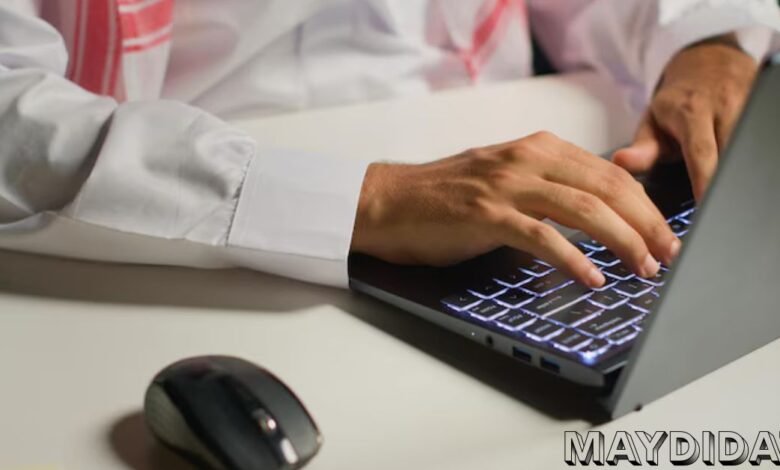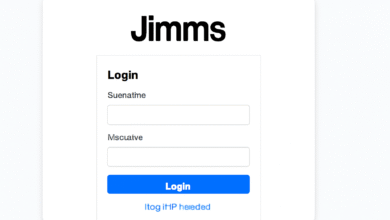Maydidate Meaning: Decoding a Modern Digital Expression

Maydidate meaning has begun to surface in modern digital communication, prompting curiosity and discussion about its origins and usage. In the constantly evolving online culture, new words and phrases often emerge from specific communities or contexts, gradually gaining popularity across wider platforms. “Maydidate” appears to be a portmanteau or blend word, possibly derived from the fusion of “maybe” and “candidate,” or a similar combination. Regardless of its precise formation, its presence is now being observed in discussions across social media, forums, and meme culture, where users adopt novel language to express nuanced sentiments. The term serves as an example of how modern vocabulary can quickly develop and gain traction, even without a clear or universally accepted definition at the outset.
Contextual Use and Cultural Implications of Maydidate
In many online discussions, maydidate meaning is tied to the ambiguity and uncertainty associated with decisions or potential outcomes. Whether in reference to relationships, job prospects, or informal debates, the term maydidate is used to describe a person, choice, or situation that remains undecided or somewhere between a possibility and a commitment. This use reflects broader cultural patterns in which people increasingly resist absolute definitions and instead embrace flexible, evolving interpretations. The term captures a relatable state of indecision or in-between status, offering a humorous or thoughtful shorthand that resonates with digital audiences navigating complexity in modern life.
Maydidate as a Linguistic Innovation in Online Speech
The creation of words like maydidate highlights the innovative nature of digital language, where users constantly generate terms to suit their expressive needs. These words often emerge organically, without formal linguistic rules or academic backing, yet they function effectively in conveying meaning. In this context, maydidate operates as a linguistic tool that allows users to articulate indecisiveness in a creative and relatable way. Language on the internet tends to be experimental, drawing from irony, humor, and shared cultural references. Maydidate’s flexibility allows it to be used in multiple contexts, and its novelty makes it stand out in conversation, enhancing its viral potential.
Impact of Memes and Humor on the Spread of Maydidate
One of the reasons maydidate meaning has spread across digital platforms is due to its use in memes and humorous posts. Memes often serve as cultural vehicles for new terminology, helping unfamiliar words become more accessible and widely recognized. A funny meme or a relatable social media post can propel a word like maydidate into broader usage, especially if the term captures a common emotion or social situation. For instance, a meme about someone hesitating before accepting a job or entering a relationship might use “maydidate” to sum up that hesitation in a catchy and entertaining way. Humor and relatability are powerful tools in shaping online vocabulary, and maydidate benefits from both.
Generational Influence and Youth Adoption of Maydidate
Younger generations, particularly Gen Z and Millennials, are known for their dynamic and often playful use of language. They frequently adopt or invent terms that reflect their values, lifestyles, or unique cultural experiences. Maydidate fits well within this trend, offering a whimsical yet meaningful way to describe uncertainty or hesitation. The appeal lies in its freshness and ambiguity—it can be used seriously, ironically, or even sarcastically, depending on the tone and context. Its rise can be attributed in part to the way youth culture values expressiveness and originality, with social media providing a fertile ground for new words to flourish.
Maydidate in Pop Culture and Informal Discourse
As online terminology seeps into everyday conversations, words like maydidate begin to appear not only in digital spaces but also in casual speech and even creative works. Some users may refer to a “maydidate” when talking about someone they’re unsure about dating or a project they’re not fully committed to pursuing. Pop culture, including podcasts, vlogs, and stand-up comedy, also plays a role in normalizing such terms, often amplifying them through performance or discussion. The blending of digital language into mainstream culture reflects how fluid and influential internet-born expressions can be, especially when they serve a purpose in articulating modern life experiences.
Ambiguity and the Psychological Resonance of Maydidate
Beyond its social and linguistic impact, the maydidate meaning taps into psychological themes that many individuals experience regularly. Indecision, fear of commitment, and the pressure to choose among uncertain options are common challenges in both personal and professional contexts. By labeling these feelings with a term like maydidate, individuals gain a way to talk about them without the weight of judgment or finality. The word functions as a buffer—a humorous or gentle placeholder that communicates ambiguity without requiring resolution. This psychological utility enhances its relevance, making it more than just a passing trend but a term that fulfills an emotional and communicative need.
Digital Identity and Expression Through New Terms
Online identities are constructed through language, and maydidate offers a way for users to define and display their thought processes in a concise, catchy format. When someone uses maydidate in a tweet or text, they are sharing more than a joke—they are offering a glimpse into their mindset, emotions, or social stance. These micro-expressions form part of the broader tapestry of digital identity, where users rely on personalized vocabulary to navigate and share their experiences. Words like maydidate thus become markers of individuality, group membership, or cultural alignment, allowing people to signal their awareness of certain trends or communities.
The Lifecycle of Emerging Slang in the Internet Age
As with many newly coined expressions, the popularity of maydidate may follow a typical trajectory seen in internet slang. Initial novelty drives early adoption, especially within niche online communities or among influencers. As the term becomes more mainstream, it may appear in memes, trend on platforms like TikTok, and eventually find its way into informal offline speech. Over time, the term may either fade from use or evolve to take on additional meanings. Its longevity will depend on its adaptability and continued relevance. Some terms fade as quickly as they rise, while others become embedded in digital lexicons or even formal dictionaries if their impact is significant.
Conclsuion
Maydidate meaning exemplifies how language evolves not just to describe the world but to comment on it. The term can be seen as a subtle critique of the modern tendency to delay decisions, avoid firm labels, or hover in states of possibility. It reflects a world where certainty is elusive and where digital life encourages experimentation with identity, goals, and relationships. Whether used humorously or thoughtfully, the word offers commentary on a generation’s relationship with choice, commitment, and change. In this way, maydidate is more than just a playful term—it is a symbol of the current cultural and emotional climate.
FAQS
What does maydidate mean in casual conversation?
Maydidate refers to someone or something that is not yet decided or confirmed, often describing a person or situation in limbo.
Where did the term maydidate originate?
The exact origin is unclear, but it appears to be an internet-born term likely combining “maybe” and “candidate” to express uncertainty.
Is maydidate used in formal writing?
No, maydidate is a slang term and is currently used only in informal or humorous contexts, mainly online.
How is maydidate used in a sentence?
An example could be: “I’m not sure if I’m applying to that job yet—right now, I’m just a maydidate.”
Is maydidate a real word in the dictionary?
As of now, maydidate is not recognized in standard dictionaries, but its growing use may influence future inclusion if it gains broader acceptance.




